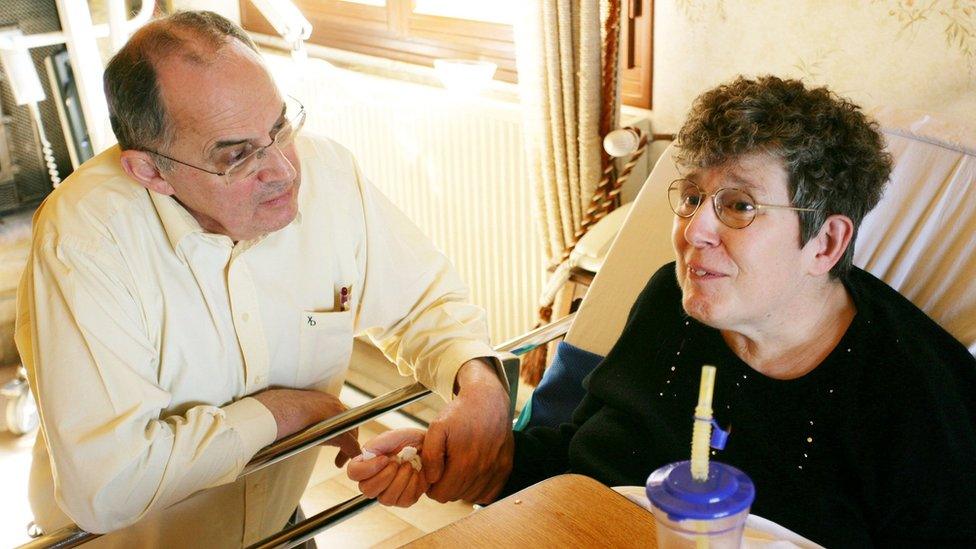Multiple sclerosis drug 'a landmark'
- Published

A drug that alters the immune system has been described as "big news" and a "landmark" in treating multiple sclerosis, doctors and charities say.
Trials, published in the New England Journal of Medicine, suggest the drug can slow damage to the brain in two forms of MS.
Ocrelizumab is the first drug shown to work in the primary progressive form of the disease.
The drug is being reviewed for use in the US and Europe.
MS is caused by a rogue immune system mistaking part of the brain for a hostile invader and attacking it.
It destroys the protective coating that wraps round nerves called the myelin sheath.
The sheath also acts like wire insulation to help electrical signals travel down the nerve.
Damage to the sheath prevents nerves from working correctly and means messages struggle to get from the brain to the body.
This leads to symptoms like having difficulty walking, fatigue and blurred vision.
The disease can either just get worse, known as primary progressive MS, or come in waves of disease and recovery, known as relapsing remitting MS.
Both are incurable, although there are treatments for the second state.
'Change treatment'
Ocrelizumab kills a part of the immune system - called B cells - which are involved in the assault on the myelin sheath.
In 732 patients with progressive MS, the percentage of patients that had deteriorated fell from 39% without treatment to 33% with ocrelizumab .
Patients taking the drug also scored better on the time needed to walk 25 feet and had less brain loss detected on scans.
In 1,656 patients with relapsing remitting, the relapse rate with ocrelizumab was half that of using another drug.
Prof Gavin Giovannoni, from Barts and The London School of Medicine and Dentistry, was involved in the trials and said: "The results shown by these studies have the potential to change how we approach treating both relapsing and primary progressive MS."
He told the BBC: "It's very significant because this is the first time a phase three trial has been positive in primary progressive MS."
More than 100,000 people are diagnosed with MS in the UK, around one-in-five are progressive.
Dr Aisling McMahon, the head of clinical trials at the MS Society, commented: "This is really big news for people with the primary progressive form of multiple sclerosis.
"It's the first time a treatment has shown the potential to reduce disability progression for this type of MS, which offers a lot of hope for the future."
The drug is being considered by the European Medicines Agency and the US Food and Drug Administration.
But Prof Giovannoni warned that patients in the UK may be disappointed as it may be hard for the NHS to fund everyone getting a drug that is likely to be expensive.
He told the BBC: "I would expect a narrow group of people to be eligible."
Dr Peter Calabresi, from Johns Hopkins University in Baltimore, added: "This is the first drug to show a significant effect in slowing disability progression in a phase three trial in primary progressive multiple sclerosis and therefore represents a landmark study in the field."
But he warned doctors to "stay vigilant" because of the risk of side-effects.
Weakening the immune system increases the risk of infection and of cancer emerging.
Follow James on Twitter., external